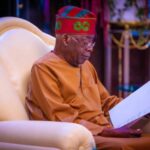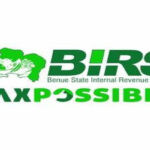Stakeholders in the public and private sectors, academia, civil society groups and the media have called for the harmonisation of all tax laws in Nigeria.
They said that this would allow for a more innovative way of taxation that will prevent duplicity and multiplicity in collection of taxes across the three tiers of government in the country.
- PODCAST: A Deeper Look At How Some Nigerian Elites ‘Siphon’, Hide Loots
- Man puts self up for sale in Kano
This was contained in a communique at the end of a one-day dialogue on Fiscal Governance and Economic Resilience in Nigeria, with the theme, “Emerging Issues and Policy Options” held on Thursday in Abuja.
It was organised by the Partnership to Engage, Reform and Learn-(PERL) a UK Foreign, Commonwealth and Development Office (FCDO) funded governance programme in Nigeria.
Participants said the centralization of the entire database linked with the National Identity Numbers of citizen on taxation should be domiciled with the nation’s tax authority.
They said this would allow government have real time intelligence on the economic status of citizens and for planning purposes.
“The use of consultants in the tax regime is detrimental to national revenue drive, and thus, there is need to institute a vibrant revenue generation drive by public institutions instead of using consultants.
“The need for synergy and coordination among government agencies in fiscal governance in the implementation of the major frameworks; Innovative fiscal policies administration required in tackling underperforming or performing revenue generation mechanism of the agencies at both national and sub-national levels is key in effective fiscal governance in Nigeria,” the communique said.
They noted the need for an integrated revenue architecture at the national and subnational levels working independently to enhance revenue drive in the robust fiscal governance of Nigeria.
They also noted that the role and absolute independence of Legislative Oversight, Public Account Committee (PAC) and the Auditor General of the Federation, is sacrosanct in effective fiscal governance in Nigeria.
Participants also called for urgent legislation to guarantee the independence of Auditor General of the Federation to enhance efficiency, transparency and accountability at all levels of governments.
They noted that capacity building among public officials in the preparation and implementation of fiscal governance strategic frameworks, especially at the sub-national level was important to re-energize the fiscal governance in Nigeria.
Speaking at the event, the British High Commission in Abuja said that Nigeria’s infrastructure deficit can be fixed if the non-oil sector is explored.
The commission also expressed concern that with about 10 percent Gross Domestic Product (GDP), Nigeria has one of the lowest levels of revenue generation in Africa.
Speaking at a dialogue, the governance team leader at the High Commission, Lucy Hayes, said though they had seen some improvements in internal revenue generation at state level, there is more to be done.
“But we also know that Nigeria -at less than 10 percent of GDP has one of the lowest levels of revenue generation in Africa. And we know that Nigeria’s fiscal deficit – now at more than 6%- has been exacerbated by Covid. Diversifying and increasing non-oil revenue is critical to help finance essential infrastructure and services sustainably,” she said.
Hayes said without a diversified economy and a stronger tax-based less dependent on oil, Nigeria’s economic resilience would continue to be shaken by global oil price changes.
She said, “And those shocks will only get stronger as the world enters a phase of transition away from fossil fuels. This conversation cannot come soon enough.”
Hayes who said the UK was pleased to support the dialogue on fiscal governance and economic resilience, added that they had been supporting governance reforms in Nigeria for nearly 20 years.
She said, “And we have seen some strong progress in a number of states. We have seen improvements in the budgeting process, in the allocation of resources to basic service delivery and in improved health and education outcomes.”
According to the Partnership to Engage, Reform and Learn-Engaged Citizen Pillar (PERL-ECP), an estimated 90 million people, almost half of Nigeria’s population, live in abject poverty, despite recent developments in socio-economic development in the country.
PERL-ECP, a five-year governance programme funded by the United Kingdom (UK) Foreign, Commonwealth and Development office to encourage growth and decrease poverty, noted that the figures were worrisome.
The National Team Leader of PERL-ECP, Dr. Adayi Ode, lamented the incessant budget deficits of over N5trn in two years and called for actions to reverse the trend.

 Join Daily Trust WhatsApp Community For Quick Access To News and Happenings Around You.
Join Daily Trust WhatsApp Community For Quick Access To News and Happenings Around You.


